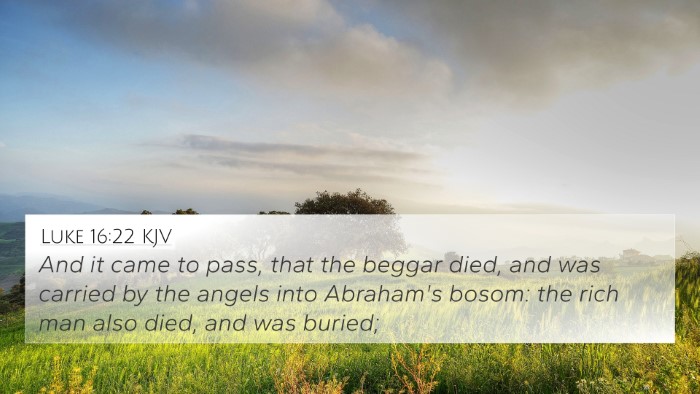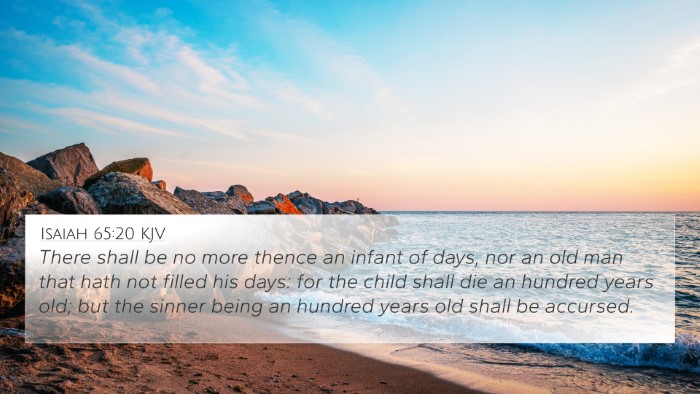Meaning and Interpretation of John 8:21
John 8:21 states, "Then said Jesus again unto them, I go my way, and ye shall seek me, and shall die in your sins: whither I go, ye cannot come." This verse captures a poignant moment in the teachings of Jesus as it reflects on His impending departure and the spiritual consequences for those who reject Him.
Summary of Insights
This verse can be understood through the insights derived from various public domain commentaries, addressing themes of spiritual misunderstanding, the necessity of faith, and the impending judgment for those who do not believe in Christ.
1. Contextual Overview
In the wider context of John 8, Jesus is engaging in a discourse with the Pharisees who are often characterized by their disbelief and hard-heartedness toward His message. Here, He foreshadows His crucifixion and ascension, indicating that they will be left searching for Him, yet unable to find Him due to their spiritual blindness.
2. Commentary Insights
- Matthew Henry: Henry emphasizes the dire warning that Jesus provides, pointing out that those who reject His message will face separation from Him, which equates to eternal damnation. He notes that seeking Jesus is futile without the correct belief.
- Albert Barnes: Barnes provides a deeper examination of the phrase "ye shall die in your sins." He relates this to the Jewish concepts of sin and atonement, indicating that without acceptance of Jesus, their sins remain unaddressed, leading to an inevitable spiritual death.
- Adam Clarke: Clarke highlights the contrast between the seekers of truth and those bound in their sins. He stresses that the inability to follow Jesus stems from a heart hardened by unbelief and pride, underscoring the importance of spiritual humility and recognition of one's condition.
3. The Spiritual Implications
This verse also reflects on the broader themes of salvation and judgment. Jesus' statement "where I go, ye cannot come" signifies the impossibility of reaching heaven without first accepting the sacrifice He will make. The implications are profound: it shows that belief in Christ is essential to avoid spiritual death.
4. Cross-Referencing Biblical Texts
Understanding John 8:21 benefits from cross-referencing with other biblical verses that highlight similar themes. Below are key verses that relate to John 8:21:
- John 14:6: Jesus declares Himself as "the way, the truth, and the life," indicating that without Him, there is no access to the Father.
- Romans 6:23: This verse explains the wages of sin being death, reinforcing the consequences highlighted in John 8:21.
- John 7:34: Jesus again emphasizes that He will be with them for a time, but then will leave, pointing to the same stark reality of separation.
- Matthew 25:41: Reference to eternal punishment for the unrepentant echoes the warning in John 8:21 about dying in one’s sins.
- Luke 13:3: Calls for repentance, drawing attention to the necessity of seeking Jesus to avoid spiritual demise.
- Hebrews 9:27: States the certainty of death for each person, followed by judgment, emphasizing the urgency of accepting Christ.
- Psalm 9:17: Alludes to the fate of the wicked; not finding God leads to destruction, resonating with Jesus' warning.
5. Thematic Connections
The verse exemplifies various inter-Biblical dialogues regarding themes of salvation, redemption, repentance, and the perils of disbelief. This reflection links John 8:21 with the urgent need for individuals to seek Jesus genuinely. It forms part of a larger conversation about the nature of sin and the path to reconciliation with God.
6. Practical Implications for Believers
For modern believers, John 8:21 acts as a crucial reminder of the importance of faith in Christ. The spiritual ramifications of rejecting or misunderstanding His message are gravely serious. It encourages readers to reflect on their relationship with Jesus and seek to deepen their understanding and commitment to Him.
7. Conclusion
Ultimately, John 8:21 serves as both a warning and an invitation. While it starkly cautions against dying in sin, it simultaneously points toward the saving grace available through faith in Christ. By engaging with this verse and its cross-references, believers can draw deeper insights into the necessity of following Jesus and the eternal consequences of their beliefs.
Resources for Further Study
For those looking to explore the connections and themes within the Bible, the following tools and methods can enhance your understanding:
- Bible concordance for finding cross-references.
- Cross-reference Bible study guides to see links between verses.
- Comprehensive Bible cross-reference materials for an in-depth analysis.
- Utilizing a cross-reference system to understand biblical themes.
- Guides on how to effectively use Bible cross-references in personal studies.
By integrating these resources, believers can develop a richer understanding of Scripture and its interconnected themes, aiding in personal study and sermon preparation.






















